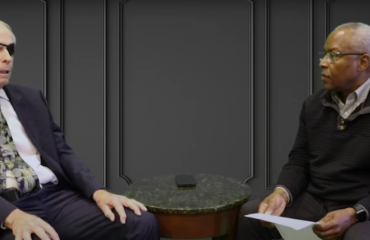Justice Speaks Podcast Episode #14
The intuitive understanding of the central role of the judge, which had been embraced by many of the original Drug Treatment Court (DTC) judges in creating and operating their courts, has been supported by significant new research. DTCs have been the subject of more scientific research than any other judicial activity. However, the primary focus of the research was whether DTCs were an improvement over the other types of case processing for drug-dependent defendants. Once it was clear that DTCs were more effective than other approaches, the question of how they were so effective became the subject of further research.
What the Research Declares
That research has now substantiated that intuitive understanding, as shown by the conclusion drawn by Doug Marlowe, one of the preeminent researchers in the area of DTCs, “The …judge is a key component of drug court . . . .”
Thus, as a critical component, the foundation of a successful DTC is the relationship between the participant and the judge. This relationship for a drug court participant can be transformational. The simple act of a judge rising to applaud the success of a DTC participant can be the first step. Such small outward signs of respect in the form of rewards from the judge can motivate participants in a way that improves their chances of success.
Successful Drug Treatment Court Judges
The more successful DTC judges exhibited a more positive judicial demeanor, e.g., respectful, fair, attentive, enthusiastic, consistent/predictable, caring, and knowledgeable attitudes and behaviors produced better outcomes. The evidence shows that individuals who felt that their judge 1) gave them a voice by providing them with a chance to tell their story, 2) maintained neutrality through fair treatment, 3) demonstrated respect, and 4) were knowledgeable about their case and could be trusted reported fewer days of drug use than those who did not feel their judge demonstrated these traits. This research confirms the power of the four principles of procedural fairness.
What do you think?
Additional Information
Get more articles like this
in your inbox
Subscribe to our mailing list and get the latest information and updates to your email inbox.
Thank you for subscribing.
Something went wrong.








